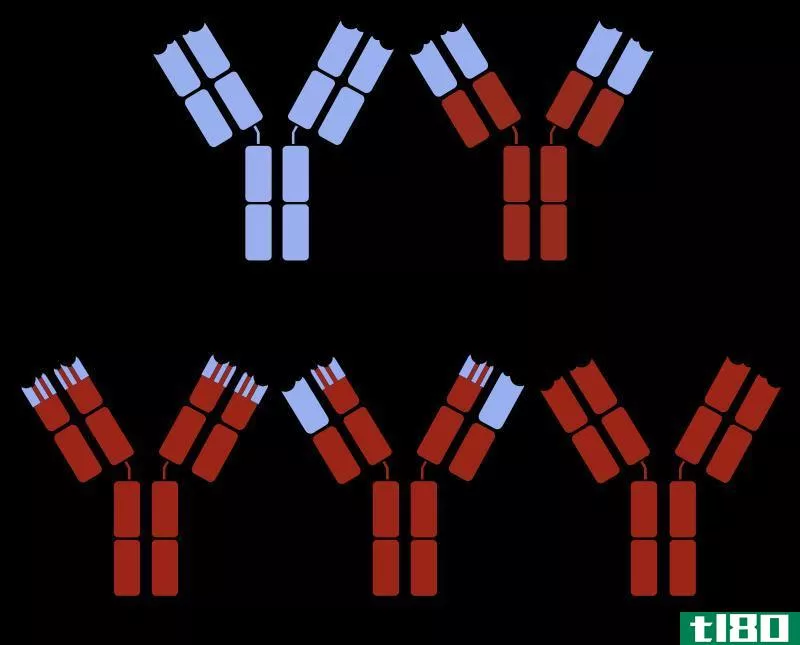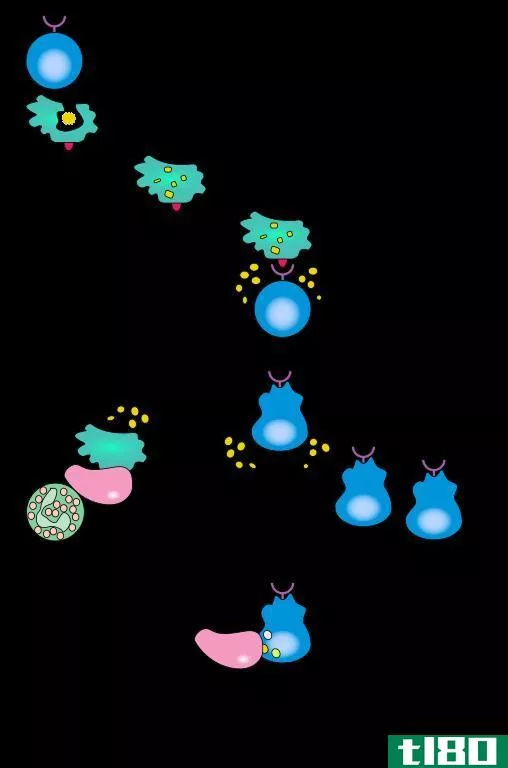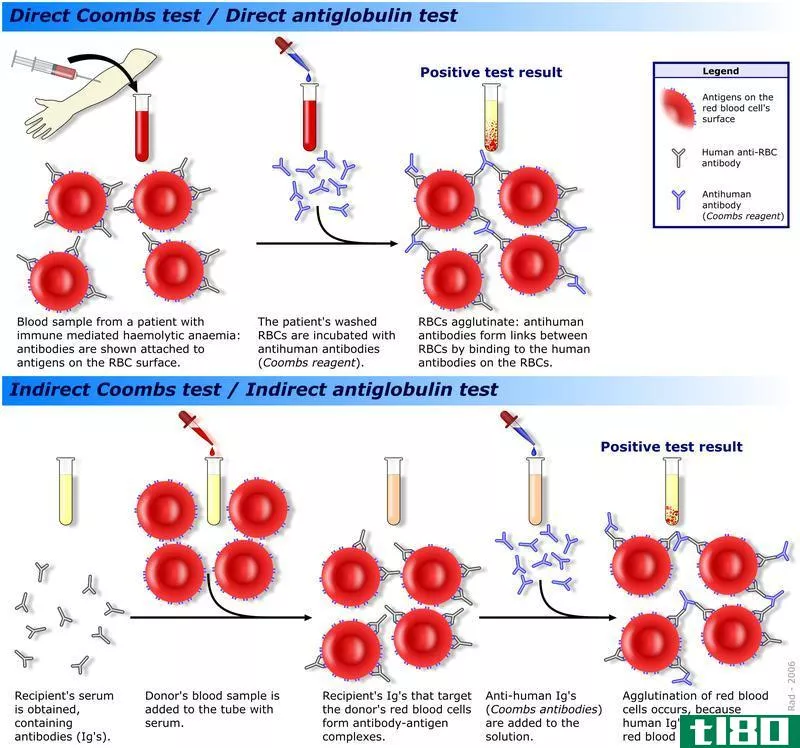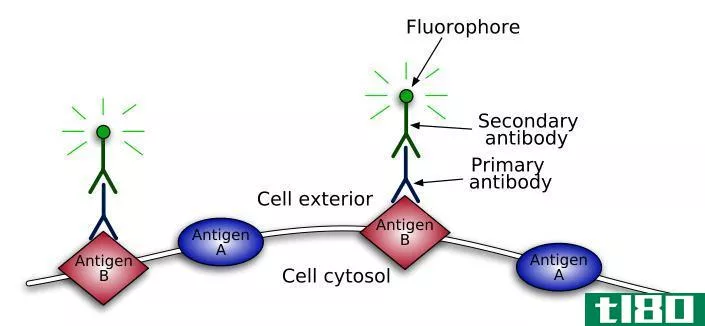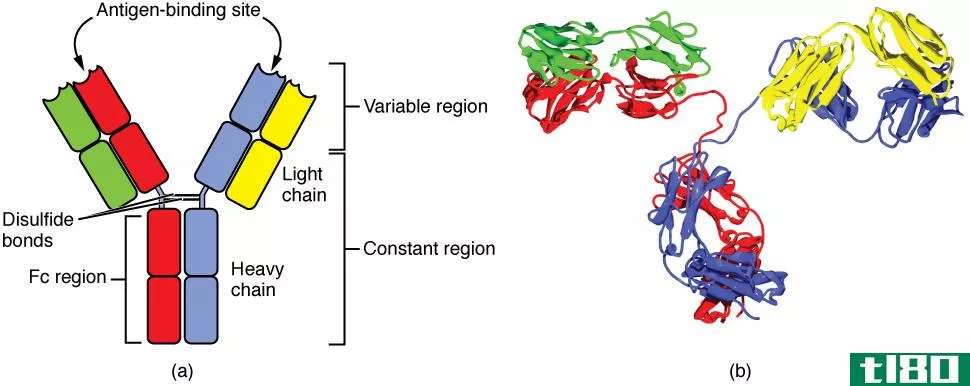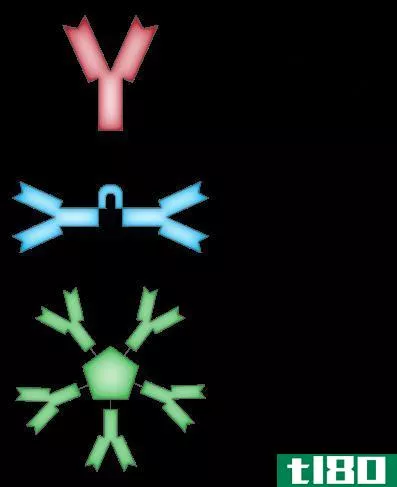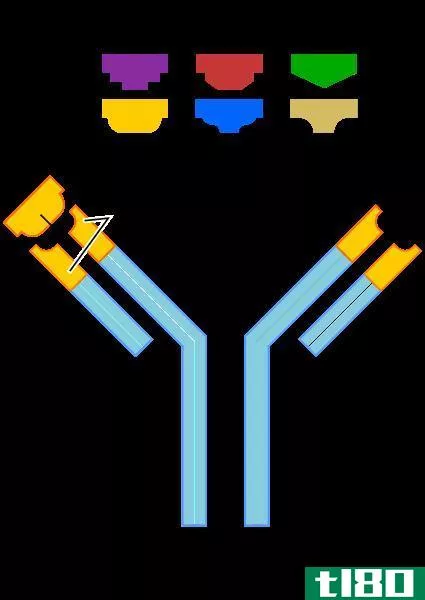免疫球蛋白的差异(differences between immunoglobulin)和抗体(antibodies)的区别
免疫球蛋白与抗体
Ever wonder 为什么? we don’t get sick easily even if the surroundings are more polluted than before? It’s because we have tiny soldiers inside our body, and they are called immunoglobulin. There has been confusion that immunoglobulin and antibodies are different things. However, as I do my research on the Internet, immunoglobulin and antibodies are pretty much the same when it comes to their function.An antibody is a Y-shaped protein which has the 任务 to determine and neutralize certain bacteria and viruses that try to invade our immune system. Immunoglobulin is also a protein that carries the same function as antibodies. In this regard, the terms immunoglobulin and antibodies are often used interchangeably.The Y-shape of the antibody enables its key to unlock it and release the antibodies inside the immune system. This key is known as an antigen. The antigen helps the antibody to determine the foreign object within our body. It also comes in the shape of a “Y” enabling the antibody to activate and perform its neutralizing function. In this case, the antibody or immunoglobulin will be found in the bloodstream, tissues, and other bodily fluids. The antibodies or immunoglobulin come from the 等离子体 细胞 which can be derived from the免疫系统的B细胞。The B 细胞 become pla**a 细胞 when an antigen binds to its structure. Sometimes, the T cells help the B cells to activate.
There are five types of immunoglobulin: IgM, IgG, IgA, IgD, and IgE. These immunoglobulin, or antibodies, have similar, basic structures. They contain four polypeptide chains which are fused together by disulfide 债券 forming a symmetrical molecular structure.
The immunoglobulin, or antibodies, can really work wonders. When activated, they 信号 other cells of the immune 系统 to be on the alert whenever there are invading foreign bodies like bacteria and viruses. The antigen plays a very important role in the activation of the antibodies. Without it, we would always catch a cold, flu, and other types of diseases.
If you have seen TV commercials that encourage mothers to let their toddlers play in muddy terrains or seemingly dirty surroundings, that is one way of boosting the child’s immune system. As long as they properly clean their children after playing, they don’t have anything to 担心 about. And because the body has immunoglobulin, or antibodies, a child cannot easily catch 感冒 and the flu. The immunoglobulin, or antibodies, work day and night to keep you out of reach of bacteria and viruses.
But under certain conditi***, foreign bodies can still make you sick. This is where you need to eat plenty of nutritious foods and Vitamin C rich foods like citrus fruits to enhance your immune system. To be able to get the most out of our little soldiers’ protection, you also need to take care of them through eating the right 食物 and drinking plenty of fluids.Remember that our immunoglobulin, or antibodies, can also get sick if we don’t take care of them. As a resp***ible person who always keeps an eye on your health, you have to properly take care of your body.
Summary:
- 免疫球蛋白和抗体可以互换使用。
- 抗体,或免疫球蛋白,是一种Y形的蛋白质,有助于与我们体内的疾病作斗争。
- 抗体或免疫球蛋白通常存在于我们的血液、组织和其他形式的体液中。它们是由免疫系统的浆细胞产生的。
- 在抗原的帮助下,抗体或免疫球蛋白可以发挥其功能。抗原就像开启抗体的钥匙。
- 由于抗体的存在,人们不容易得病。
- 发表于 2021-06-24 10:53
- 阅读 ( 87 )
- 分类:健康医疗
你可能感兴趣的文章
嵌合体(chimeric)和人源化抗体(humanized antibody)的区别
嵌合抗体与人源抗体的关键区别在于嵌合抗体是由不同种类的域组成的抗体,它携带较大的非人类蛋白,而人源化抗体是由非人类物种的修饰蛋白序列组成的抗体。 嵌合抗体和人源化抗体是两类非人源性抗体。它们在实验室...
- 发布于 2020-09-15 20:04
- 阅读 ( 371 )
细胞介导(cell mediated)和抗体介导免疫(antibody mediated immunity)的区别
...其失活或引起溶解。 图02:抗体介导的免疫 抗体是免疫球蛋白。抗体有IgA、IgG、IgM、IgE和IgD五种类型。IgG是最丰富的抗体类型。抗体在使抗原失活后减少。然而,B淋巴细胞在遇到抗原时会产生记忆细胞。当我们第二次接触同一...
- 发布于 2020-10-15 22:57
- 阅读 ( 387 )
抗血清(antiserum)和抗体(antibody)的区别
...物体或有毒物质的特**抗体的血清,而抗体则是一种免疫球蛋白,能识别进入我们血液的外来抗原并与之结合。 抗体通过识别病毒、细菌、毒素、真菌孢子等外来病原体,并通过成功中和它们来保护我们,从而在我们的免疫系统...
- 发布于 2020-10-17 02:55
- 阅读 ( 439 )
完成(complete)和不完全抗体(incomplete antibodies)的区别
...与不完全抗体 抗体由B细胞组成,是参与免疫反应的免疫球蛋白。抗体可以根据其结构、功能、反应类型和辅助成分的存在而分为不同的类别。抗体是对抗原的反应,因此也被称为抗原决定簇。一旦抗体识别出一种抗原,它就与...
- 发布于 2020-10-20 11:22
- 阅读 ( 503 )
初级的(primary)和次级抗体(secondary antibody)的区别
...级抗体与二级抗体 抗体是由浆细胞产生的Y形蛋白或免疫球蛋白。抗体具有识别抗原的能力,抗原是病原体、毒素等外来分子,并成功地中和它们所构成的威胁。抗体结构由一部分称为副作用域(位于“Y”形结构尖端的抗原结合...
- 发布于 2020-10-20 16:07
- 阅读 ( 525 )
免疫球蛋白(igm)和免疫球蛋白(igg)的区别
...IgG5。并列比较——IgM与IgG6。摘要 什么是免疫球蛋白(an immunoglobulin (ig))? 免疫球蛋白(Ig)又称抗体,是由免疫系统白细胞产生的一种蛋白质,对细菌、病毒、真菌、原生动物、毒素等引起的感染作出反应,大型糖蛋白分子,由...
- 发布于 2020-10-21 23:12
- 阅读 ( 375 )
免疫球蛋白(immunoglobulin)和抗体(antibody)的区别
免疫球蛋白(immunoglobulin)和抗体(antibody)的区别 抗体的产生是人体免疫系统的关键功能。这种抗体可以识别和中和细菌和病毒等病原体。免疫球蛋白和抗体都是可替代的术语。一些科学家认为,免疫球蛋白作为抗体所属的主要...
- 发布于 2020-10-22 19:44
- 阅读 ( 337 )
抗原(antigen)和抗体(antibody)的区别
...免疫系统产生抗体的任何物质,而抗体则是一种Y型免疫球蛋白保护蛋白,能够与抗原结合以中和抗原。 免疫学以及微生物学、病理学和皮肤病学的一些方面的核心理解都依赖于对抗原抗体反应的基本概念的理解。这些都是知识...
- 发布于 2020-11-03 08:22
- 阅读 ( 884 )
抗原(antigen)和抗体(antibody)的区别
...受体结合。免疫原是抗原的另一个术语。抗体也称为免疫球蛋白(Ig)。抗体由两条重链和两条轻链组成,使整个分子呈Y形。抗体是由血液中的浆细胞产生的,它们对特定的抗原具有高度的特**。 覆盖的关键领域 1.什么是抗原–...
- 发布于 2021-06-29 12:35
- 阅读 ( 479 )
免疫球蛋白(immunoglobulin)和抗体(antibody)的区别
主要区别免疫球蛋白(main difference immunoglobulin) vs. 抗体(antibody) 免疫球蛋白和抗体是大多数脊椎动物对特定抗原产生的抗病蛋白。免疫球蛋白和抗体都是糖蛋白。它们的分子中都含有相似的区域。免疫球蛋白附着在B细胞膜上,而...
- 发布于 2021-06-29 16:09
- 阅读 ( 211 )
